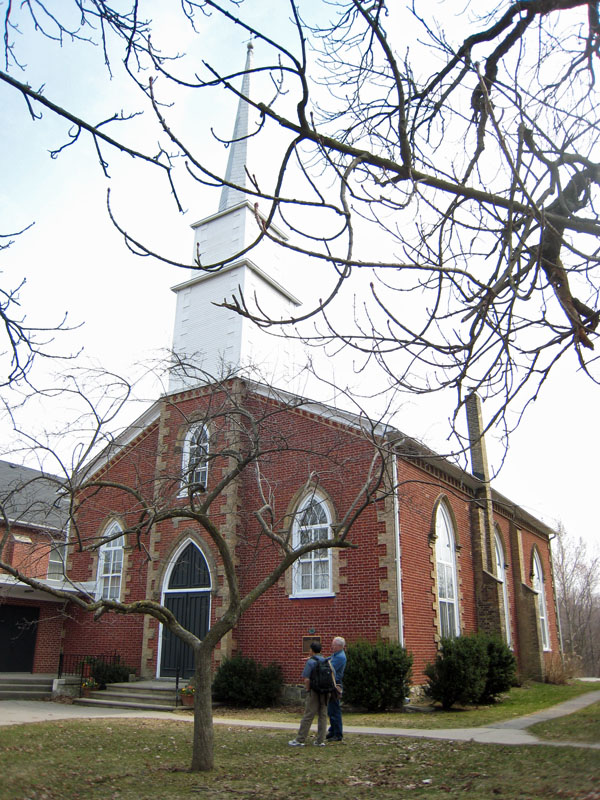When Isabella Hamilton died in 1912, her obituary in the Winnipeg Tribune was headlined, “Sheltered the Wounded: Woman Who Befriended Soldiers During the Riel Rebellion Passes Peacefully Away.” So how did my great-grandmother become a witness to one of the most riveting events in Canadian history?
Isabella’s father, John Glendinning, came from Dumfriesshire, Scotland, and her mother, Margaret Whiteside, was from Belfast. They met and married in Upper Canada. Isabella Watson Glendinning, born in Scarborough in 1834, was the eldest of their six children. When Isabella was 26, she married a young man from a nearby farm, James Hamilton. Between 1860 and 1875, they had five sons and one daughter, all of whom were baptized at St. Andrews Presbyterian Church, Scarborough.

In 1881, a group of Toronto men set up the Temperance Colonization Society and applied to the Dominion Government for a tract of land in the North-West Territories. James Hamilton was one of them. They wanted to establish a community in which they could prohibit the sale “of intoxicating liquors.”
James and his eldest son set out in June 1882 with the society’s advance party. The following year, Isabella and the rest of the family made the long trek west by train to Moose Jaw, then by horse-drawn cart to the settlement that became known as Saskatoon.
The settlers faced hardships from drought to extreme cold, and they never achieved their temperance goals because the society was not granted the expected single block of land. Moreover, there was political unrest in the region. Louis Riel, leader of the Métis people, who were of mixed First Nations and European descent, formed a provisional government in Batoche, north of Saskatoon. Canadian government troops defeated Riel’s supporters at the Battle of Batoche in May 1885.
Many of the wounded soldiers were brought to Saskatoon for treatment. The Winnipeg Tribune obituary reported that Isabella “was a most hospitable woman and never missed an opportunity in giving solace and comfort to the needy and distressed.” Isabella’s impressions of these events were not recorded, but in a letter to relatives in Ontario, her daughter, Maggie, described baking bread and buns for the visitors. “I sometimes baked about eighty weight a day in a little no. 8 stove,” she wrote. The settlers threw a party for the soldiers before they left and, according to Maggie, the dancing lasted until morning.
When the troops returned east, James Hamilton travelled with them. He never returned: he died of a heart attack in Ontario. The following year, Maggie died of typhoid.
Isabella remained in Saskatoon for several more years, but farming was difficult and she wanted her sons to continue their education. In 1890, the Hamiltons moved to Winnipeg. There, her sons worked to support themselves through medical school and law school. Twenty years later, a frail Isabella moved in with her son Thomas Glendenning Hamilton and his wife, Lilian (my future grandparents). They cared for her until her death.
Research notes: A Scottish genealogist has put together an extensive family tree of the descendants of James Glendinning and Agnes Little, married in 1701 in Westerkirk, Dumfriesshire (www.glendinning.name). Isabella Watson Glendinning is in the sixth generation of the Glendinning family on this tree. If you had ancestors in early Scarborough, you might find their names on that tree, or in St. Andrews Presbyterian Church Cemetery, Thomson Memorial Park, Scarborough, Ontario.
For the history of the Temperance Colonization Society, see Narratives of Saskatoon, 1882-1912, http://rootsweb.ancestry.com/~sksaskat/NarrativesOfSaskatoon/. This page brings together several first-person accounts of Saskatoon’s founding years.
Another excellent source for the history of Western Canada is Peel’s Prairie Provinces, http://peel.library.ualberta.ca/. You might come across a reference to your Prairie ancestor in the digitized pages of old books, documents, newspapers, postcards and directories on this site.
